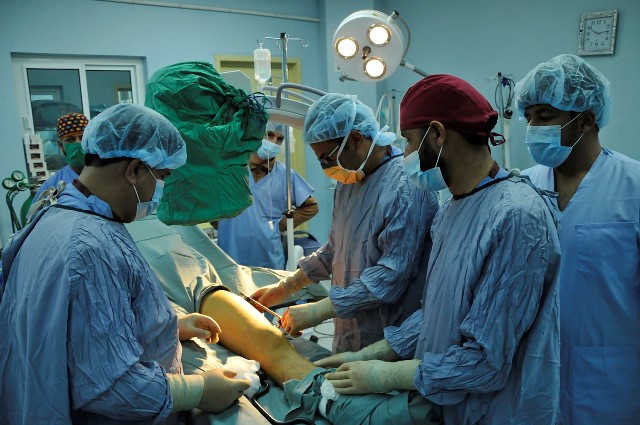Surgery can be a complex process for many individuals, and meeting with a general surgeon often brings questions. The role of general surgeons is key in diagnosing and treating a range of conditions, from minor procedures to complex operations. Understanding their expertise and the right questions to ask can help make sure that you are well-informed and prepared for the surgical process.
What Are General Surgeons?
General surgeons are medical professionals who specialize in surgical procedures involving the abdomen, breasts, soft tissues, and other related structures. They receive extensive training in the surgical treatment of various conditions and may manage both pre-operative and post-operative care. This broad specialization allows general surgeons to address a wide range of medical problems and provide comprehensive surgical solutions.
Their responsibilities go beyond performing surgeries. General surgeons are involved in diagnosing medical conditions, planning operative interventions, and collaborating closely with other healthcare specialists to deliver patient care. They are skilled in treating conditions from relatively routine issues to more advanced diseases requiring surgical intervention.
What Services Do They Offer?
These surgeons provide an array of surgical services that cover multiple body areas. Some procedures they perform include:
- Breast Surgery: This can range from biopsies to mastectomies, often for diagnosing or treating breast cancer or addressing other breast conditions.
- Colon Surgery: General surgeons manage conditions involving the colon, such as diverticulitis, inflammatory bowel disease, or colorectal cancer.
- Gastrointestinal Surgery: These procedures address problems involving the stomach, small intestine, and associated structures. Surgeons may treat conditions such as ulcers, cancers, or bleeding within the gastrointestinal tract.
- Gallbladder Surgery: Surgeons often remove the gallbladder in cases of gallstones, infections, or other gallbladder-related problems.
- Hernia Repair: Hernias, which occur when internal tissue pushes through a weak spot in muscle or connective tissue, are commonly treated through minimally invasive or open surgery.
General surgeons aim to provide care that improves quality of life and resolves underlying health concerns.
What Should You Ask Your General Surgeon?
When meeting with your general surgeon, it is helpful to ask focused questions to better understand the procedure, potential outcomes, and recovery process. Here are three questions to think about:
- What is the purpose of the procedure, and how will it address my condition?
Understanding why the procedure is necessary and how it is expected to help is fundamental. Your surgeon can explain the issue at hand and how the surgical approach will improve or resolve it.
- What are the risks and benefits of the surgery?
Every surgical procedure carries some risks, and it is helpful to know these beforehand. Discussing the benefits alongside potential complications or challenges allows for a clearer picture of the procedure.
- What is the expected recovery timeline?
Recovery differs depending on the type of surgery and your overall health. Ask about post-operative care instructions, timelines for resuming normal activities, and any warning signs to monitor during recovery.
These questions serve as a starting point for more specific discussions tailored to your condition and the planned procedure. Open communication with your general surgeon can help you better understand your treatment plan.
See Your General Surgeon Today
From diagnosing conditions to delivering precise surgical care, general surgeons play an integral role in your health journey. Whether managing gallbladder discomfort, addressing hernias, or treating gastrointestinal conditions, their expertise makes sure patients receive the necessary care. If you are facing a potential surgical need, schedule a consultation with a general surgeon today to explore your options and move closer to improved health.
- mylovelyfurryfriend discover expert tips on dog health
- Infectious Diseases Updates – Stay Informed, Stay Protected!
- Wegovy For Weight Loss – A Breakthrough in Managing Obesity!
- Emergency Medicine Forum – A Hub for Fast-Paced Knowledge, Support & Updates!
- Pediatrics Discussions – Insights, Challenges, and Expert Advice for Better Child Health!





Leave a Reply